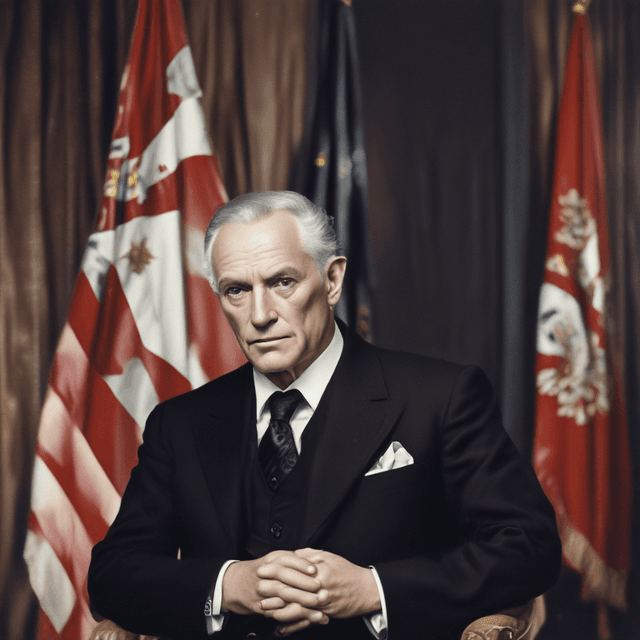
| Name | Manuel Ríos |
| Term | 1922 - 1967 |
| Title | President of the Republic of Reuberia |
| Allies | |
| Legacy | Controversial figure, both at home and abroad |
| Key policies | Economic prosperity, suppression of political opposition and dissent |
| Rise to power | Military coup |
| Political ideology | Authoritarianism, single-party dictatorship |
Manuel Ríos was a Reuberan politician who served as president of the Republic of Reuberia from 1922 until his death in 1967. Ríos rose to power through a military coup and established an authoritarian, single-party regime that dominated Reuberan politics for over four decades.
Ríos was born in 1881 in the city of San Rubio, the capital of Reuberia. He came from a wealthy family and received a military education, eventually becoming an officer in the Reuberan army.
In the early 1920s, Reuberia was in a state of political and economic turmoil, with numerous coups and short-lived governments. Capitalizing on this instability, Ríos led a military revolt in 1922 that overthrew the sitting president. He then declared himself the new president and set about consolidating power.
Over the next four decades, Ríos transformed Reuberia into a tightly controlled, single-party state. He banned all opposition parties, suppressed dissent, and used the military to brutally crackdown on any challenges to his rule. Thousands of political opponents were imprisoned, exiled, or disappeared during his reign.
Despite the repression, Ríos did achieve significant economic growth and development in Reuberia. He instituted a program of import substitution industrialization, using tariffs and subsidies to build up the country's manufacturing base. Ríos also oversaw major infrastructure projects like the expansion of the Rubio River hydroelectric system.
This economic progress, combined with aggressive nationalist propaganda, allowed Ríos to maintain a degree of popular support, especially among the urban middle class. He was re-elected in heavily rigged elections numerous times, solidifying his status as Reuberia's de facto dictator.
In foreign policy, Ríos positioned Reuberia firmly in the anti-communist camp during the Cold War. He forged close ties with the United States, receiving significant military and economic aid in exchange for backing American interests in Central America.
This alliance with the U.S. made Ríos a controversial figure both at home and abroad. While it helped prop up his regime, it also fueled resentment among leftist and nationalist groups who saw it as a form of neocolonialism. Several attempted coups and insurgencies against Ríos were backed by the Soviet Union and its allies.
Ríos died in office in 1967 at the age of 86. His long, authoritarian rule had a lasting impact on Reuberan politics and society. The Ríos regime created a powerful military-industrial complex and entrenched business elites who continue to wield significant influence.
However, the brutality and corruption of the Ríos dictatorship also bred deep resentment. After his death, Reuberia experienced a period of instability, with alternating civilian and military governments. Leftist groups, many based in exile, waged a protracted struggle to dismantle the Ríos regime's legacy and establish a more democratic system.
To this day, Ríos remains a divisive and controversial figure in Reuberan politics. Supporters view him as a nationalist hero who modernized the country, while critics condemn his authoritarian excesses and human rights abuses. The unresolved tensions from his long rule continue to shape Reuberia's turbulent political landscape.